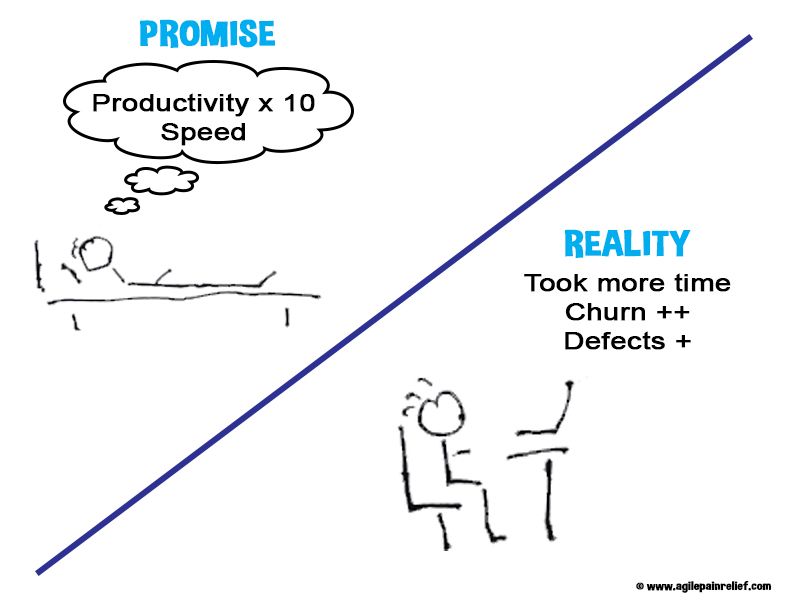Is there Value in the Noika Test
A few years ago Bas Vodde defined a simple test to help his coaching group determine whether teams were trying to be agile and whether it would be worth investing coaching time with these teams.
As described by Joe Little, the test is:
The Nokia Test is in two parts. First, are you doing Iterative Development?
- Iterations must be timeboxed to less than 4 weeks
- Software features must be tested and working at the end of each iteration
- The Iteration must start before specification is complete
The experience is that if you ask a lot of “Scrum” teams if they can pass this part of the test, they can’t. If you are at a conference, often not a single team in the room. The next part of the test checks whether you are doing Scrum (in Nokia’s opinion):
- You know who the product owner is
- There is a product backlog prioritized by business value
- The product backlog has estimates created by the team
- The team generates burndown charts and knows their velocity
- There are no project managers (or anyone else) disrupting the work of the team
Then recently on Scrum Development, Michael Dubakov started a long-winded conversation by saying: “I don’t think it is a good idea to have such tests at all.” I think Michael’s premise is good, but do see value in a set of questions as a starting point for a conversation. As a coach I use a larger version of this test to give me an idea where teams are at. It’s not the be all and end all but it can be a great starting point - i.e. here are the areas that bear closer examination. Example: In a team of seven every team member but two say the team is doing TDD. Hmmm, what’s going on. Ask more questions.
On the other hand if you actually look and care about the numerical value then you’ve missed the whole point.
What’s your take? Have you used the Noika test or something similar? Did it start a conversation? Did provide value?

Mark Levison
Mark Levison has been helping Scrum teams and organizations with Agile, Scrum and Kanban style approaches since 2001. From certified scrum master training to custom Agile courses, he has helped well over 8,000 individuals, earning him respect and top rated reviews as one of the pioneers within the industry, as well as a raft of certifications from the ScrumAlliance. Mark has been a speaker at various Agile Conferences for more than 20 years, and is a published Scrum author with eBooks as well as articles on InfoQ.com, ScrumAlliance.org and AgileAlliance.org.
